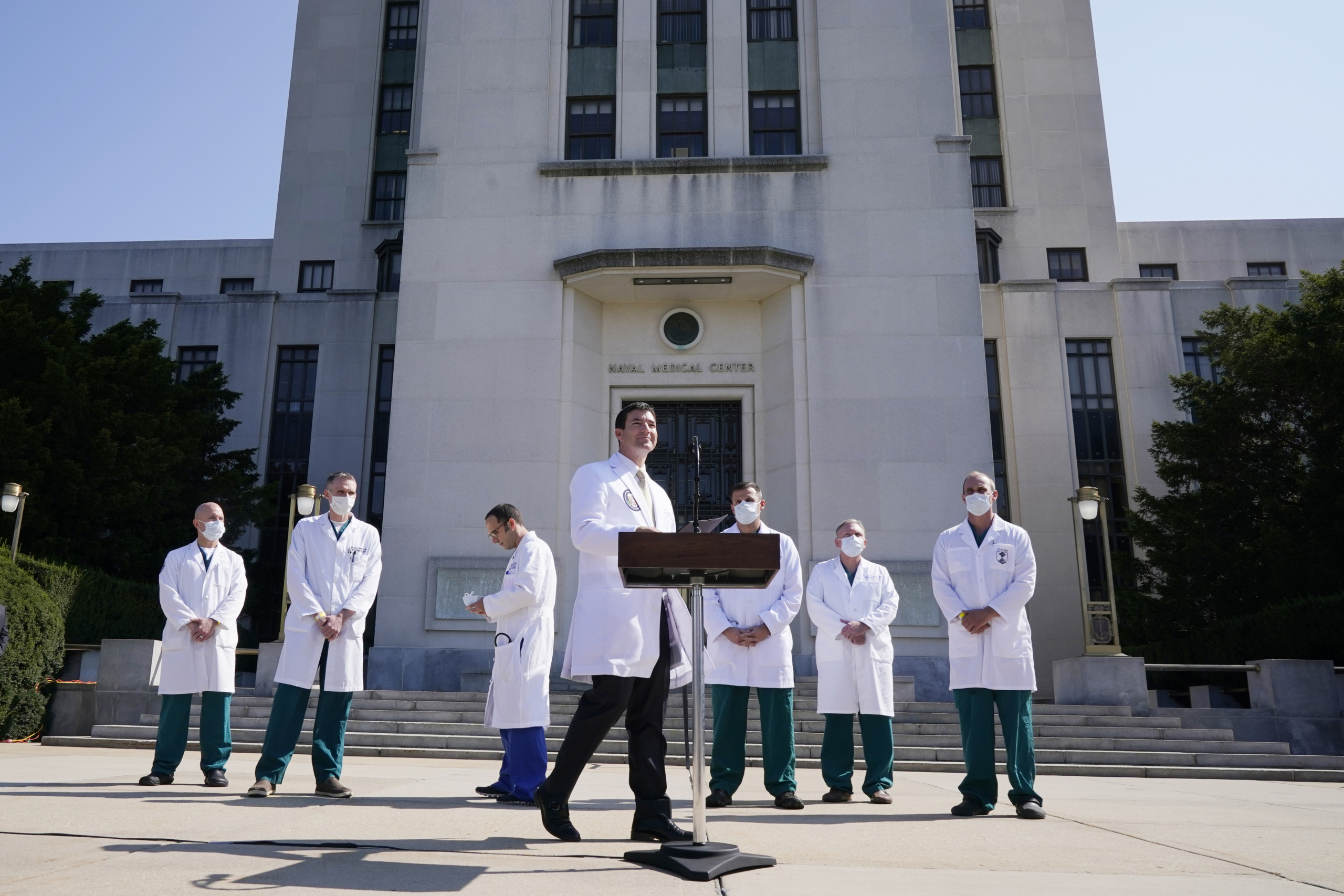This week, not long after he was diagnosed with covid-19, Donald Trump returned to the campaign trail. There are still a dizzying number of unresolved questions about his health and what happened at Walter Reed National Military Medical Center. American journalists struggling to cover the story might seek inspiration from colleagues abroad, who have learned the hard way how to cover the medical status of secretive leaders.
In the United Kingdom, in April, ten days after testing positive for covid-19, Prime Minister Boris Johnson was admitted to St. Thomas’ Hospital. A spokesperson for Johnson called his hospitalization “a precautionary step”; the next evening, doctors moved him to intensive care. “For most of the world and for the UK, it was a shock,” Luke Harding, a foreign correspondent for The Guardian who covered Johnson’s illness, said. “But actually, for us, we were not surprised.” The Guardian had sources at St. Thomas’ who sent in tips; the sources had given The Guardian a heads-up that a bed was being prepared. “We were putting this to Downing Street and saying, ‘Look, we know that his situation was far greater than you guys have acknowledged.’ And we were getting, ‘No, no, you’ve got it wrong,’ ” Harding said.
At the time, there was no formal mechanism in the UK for the hospital to make statements on Johnson’s progress. The day after he was admitted to intensive care, Downing Street officials’ updates, initially optimistic, were replaced by a bulletin that was passed from doctors to reporters. The medical assessments were brief and dry, but sources inside the hospital continued to provide viable information. Within days, officials announced that Johnson had been moved from intensive care; it was clear that he would survive. Downing Street was “in post-spin mode,” Harding explained. The reporters around the hospital had bent the Johnson press team to their will—and, just in case, Harding said, they “were also in touch with sources.”
In Brazil, a fight for President Jair Bolsonaro’s health records began in March, four months before he was diagnosed with covid-19. Bolsonaro had returned from a trip to Palm Beach, Florida, where he’d attended a birthday party at Mar-a-Lago; within days, a member of Bolsonaro’s delegation—Fábio Wajngarten, the communications director—tested positive. On social media, Wajngarten denied it, but the next day, Folha de S.Paulo, a daily newspaper, confirmed the diagnosis upon receiving a Whatsapp message that Wajngarten’s wife had sent to a parents’ group at their children’s school. “In the absence of official communication, I started to contact people who traveled on the same plane,” Jussara Soares, O Estado de S. Paulo’s (a/k/a Estadão’s) presidential reporter, said.
On Twitter, Bolsonaro announced that he was negative for covid-19, though he refused to release the test results. He continued appearing in public, flouting mask-wearing and social-distancing guidelines. In the weeks that followed, twenty-two members of his delegation tested positive. Rafael Moraes Moura, Estadão’s supreme-court reporter, filed a public information request for Bolsonaro’s medical information. The request was denied, so Estadão took Bolsonaro to court. “It was, like, the last step,” Moura said. “We tried everything before.” It wasn’t until May—by which time the case was before the supreme court and it was clear that Estadão would win—that Bolsonaro turned over his test results. They were handed to a judge, then made public. All were negative. The documents showed that Bolsonaro had taken three tests, under pseudonyms; for one, he’d used the name of the son of the nurse who took his blood; the last test had no patient’s name at all. In July, Bolsonaro announced that he had tested positive. The press didn’t have to scrounge for verification. “When he finally got infected by covid, the same day he decided to show the results,” Moura said. “He didn’t use nicknames.”
North Korea—where there have been no reported covid diagnoses, but lots of speculation about the leader’s health—is a particularly difficult story to cover. In 2008, when it was Jean H. Lee’s first day as the chief of the Associated Press’s Korea bureau, she learned that Kim Jong-il, then the country’s supreme leader, had disappeared—he didn’t show up for a major holiday pageant. “I knew immediately that something was wrong, because he should have been there,” Lee recalled. She and her colleagues got in touch with sources inside the South Korean government, intelligence contacts in Washington, and AP bureaus in Tokyo and Beijing “to see if anyone had a clue” as to what was happening. Ultimately, it was through two sources based in Washington that Lee learned Kim had suffered a stroke a couple of weeks earlier, and was in a coma.
North Korea treats the status of its leader’s health as top secret; there is virtually no journalistic access to Kim Jong-un, who is now running the country. (During the 2018 Singapore Summit, Kim Jong-un’s entourage reportedly traveled with a portable toilet so that his stools wouldn’t be susceptible to outside acquisition and analysis.) Lee learned to attune herself to absences and to identify changes in the behavior patterns of leadership. Discarding questionable tidbits of information, as tempting as they may be, is key, she explained. The dearth of information leads to wild speculation—as was the case recently, when rumors about Kim Jong-un’s health sprang up amid the regime’s strict coronavirus precautions.
Solid sources are crucial; some information will come on delay. When Kim Jong-il died, in 2011, North Korean journalists were not aware of the news until two days later. “They were in the dark,” Lee said. “And the North Korean journalists are propagandists. So they very quietly wait to find out what the news is.”
THE MEDIA TODAY: Guthrie grills Trump, but NBC still has to answer for itself
Shinhee Kang and Ian Karbal are CJR fellows.

